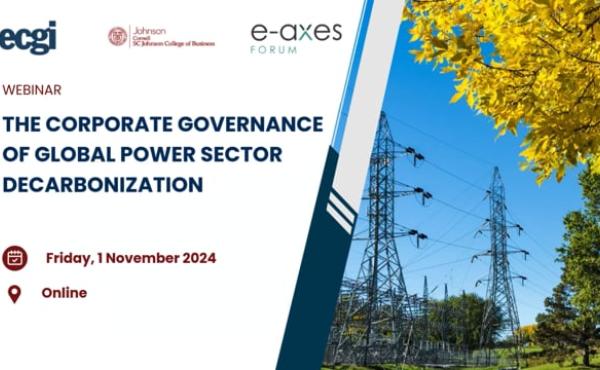
The Corporate Governance of Global Power Sector Decarbonization
Despite the Paris Agreement and continued efforts to internalize carbon emissions through taxation, global emissions remain on an upward trajectory. As of 2023, only 24% of global greenhouse gases are priced, with the average carbon price (after accounting for fossil fuel subsidies) hovering around $4/tCO2. In contrast, estimates of the social cost of carbon suggest a price north of $180/tCO2 (by the latest estimates of the Biden Administration). This wide gap underscores the pressing need for the finance sector to align its investment strategies with net-zero targets.
The global climate crisis is, at its core, a fossil fuel crisis. Given that the global power sector accounts for nearly half of all emissions (~ 14 GtCO2 annually), its decarbonization is critical to any meaningful climate solution. Financial strategies must be designed not only to phase out fossil fuels but to sufficiently expand renewable energy capacity to meet rising energy demands, including those driven by AI.
In this joint webinar, Patrick Bolton and Alissa Kleinnijenhuis presented their insights on the corporate governance implications of the financial strategies underlying the decarbonization of the global power sector, drawing from their paper, “The Economic Case for Climate Finance at Scale,” and new research focused on the global power sector. Franklin Allen, Nuno Fernandes, and Alexander Wagner commented and partook in a panel discussion on climate finance to decarbonize the global economy, with Anastasia Pappas moderating a 25-minute Q&A session involving the panel and the online audience.
Blended finance and the catalytic role of development banks will be at the heart of the financial strategies behind the global decarbonization of the power sector (Arezki et al. 2017). This financial model comes with its corporate governance specificities and challenges. The electricity developers and operators, relying on blended financing with institutional investors and development banks as co-investors, cannot be governed under a typical shareholder value maximization model. What model should they be following? What is the appropriate control allocation to creditors, development banks, and shareholders? These are some of the issues that were discussed.
Programme
Speakers
Franklin Allen
Presentations
Related materials
Watch the webinar ⬇️
Read the blog ⬇️
Organised by















